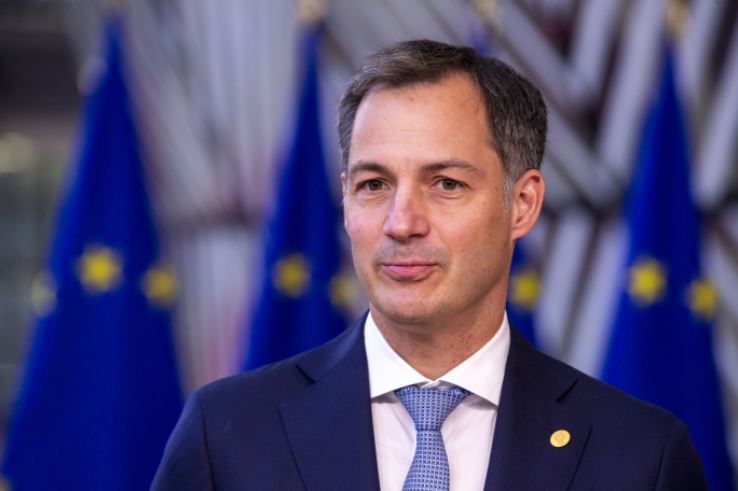If the EU moves to ban the import of Russian oil transported by sea, that will create an "imbalance" between the EU Member States that can only be solved through "compensation," stated Belgian Prime Minister Alexander De Croo on Monday.
At a press briefing in the run-up to the European summit on Monday, De Croo said he understood the difficulties Hungary, Slovakia and the Czech Republic are now facing, as they have no maritime border and can therefore only get their oil via pipelines.
"People say they want an oil boycott that they can support, but we cannot introduce a boycott that de facto affects only half of Europe," De Croo said.
On Sunday, news emerged that two options are being considered during the negotiations on a possible European embargo on Russian oil: there could be a complete ban on oil brought in by sea at the end of this year, or there could be a provisional, temporary postponement of oil reaching Europe by land via the Druzhba pipeline.
'A level playing field'
The latter option could persuade Hungary and other countries that have few short-term fallback options when it comes to imposing an import ban to adopt the measure.
Meanwhile, the Druzhba pipeline has several branches, and oil is also supplied to Germany and Poland via the northern part – meaning that they would escape the impact of an embargo that only affects imports by sea. The new sanction will be discussed at the summit on Monday afternoon and evening.
"That is why we need to see if we can organise compensation mechanisms that will provide a new balance and a level playing field" between the European countries that will continue to receive oil through pipelines and others, such as Belgium, that will be completely cut off from Russian oil imports, he said.
For the requested compensation and the monitoring of the impact of the embargo, De Croo is looking toward the European Commission.
Related News
- New EU rules on freezing and confiscating illegal assets can benefit Ukraine’s reconstruction
- Belgium threatened by supply shortages on all fronts
- De Croo calls for collective compensation as EU announces 6th package of sanctions
All other elements of the present sixth package of sanctions against Russia are supported by Belgium, but De Croo is less enthusiastic about a subsequent seventh one in the current context. "As far as sanctions are concerned, we are gradually reaching an endpoint. We are no longer in the logic of additional packages, unless the situation (in Ukraine) changes significantly."
Therefore, an embargo on Russian gas seems unlikely in the short term, but its supply continues to dominate discussions. Not only is there the Commission's REPowerEU plan – to make Europe independent from Russian gas by 2027 – European leaders will also be discussing options to control rising gas prices.
A temporary price cap is on the table, as is the introduction of a levy on imports of piped natural gas. This measure, however, would not apply to liquefied natural gas (LNG) reaching Europe by tanker, for which the EU is counting on the United States, among others.

